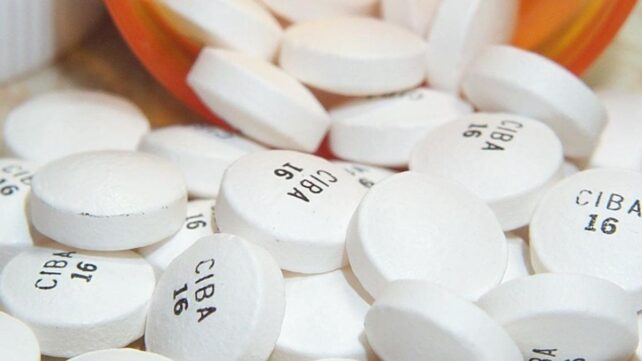An ADHD diagnosis means a person is prone to impulsivity and distractibility, which can manifest in the form of substance misuse, traffic accidents, criminality and even suicidal behavior.
A recent study published in the British Medical Journal has shown that medications like methylphenidate (brand name Ritalin) can significantly reduce these harmful outcomes in newly diagnosed patients.
The first years after an ADHD diagnosis can be a bumpy ride, bringing a sense of validation and relief, along with new challenges in figuring out how to manage newfound neurodivergence.
Related: Common ADHD Drug Could Make Some People Better Drivers
Globally, about 5 percent of children and 2.5 percent of adults have ADHD. For many, the way their brains work means they struggle with tasks that require focus and planning, which, at the lower end, means daily stress and inconvenience.
But sometimes, it's a recipe for disaster. For example, adults with ADHD are more at risk of road accidents, motor vehicle injuries, traffic tickets, and hard braking events.
Studies have found that stimulant medications, such as Ritalin, can literally add years to some people's lives. These stimulants increase the amount of key neurotransmitters in the brain, and improve attention, impulse control and decision-making.

The new study adds further evidence that these drugs can tackle some of the most serious outcomes people with ADHD face.
Researchers from the Karolinska Institute in Stockholm, Sweden led the study, drawing on data from 148,581 patients, ranging from 6 to 64-years-old, who received an ADHD diagnosis between 2007 and 2018.
Patients who started drug treatment (about 57 percent) within three months of diagnosis saw reduced risk across most of the serious outcomes assessed. In about 88 percent of cases, the drug they took was methylphenidate.
Medication reduced the risk of first-time substance misuse by 15 percent, and recurrent misuse by 25 percent.
It reduced first-time suicidal behavior by 17 percent, and subsequent suicide attempts by 15 percent.
First instances of criminal behavior were reduced by 13 percent, and repeat instances, by 25 percent.
They also found medication reduced the risk of first-time traffic accidents by 12 percent, and recurrent events by 16 percent.
"Oftentimes there is no information on what the risks are if you don't treat ADHD," study author and psychiatrist Samuele Cortese, from the University of Southampton, told journalist Philippa Roxby at the BBC.
"Now we have evidence they [ADHD medications] can reduce these risks."
This research was published in the British Medical Journal.
If this story has raised concerns or you need to talk to someone, please consult this list to find a 24/7 crisis hotline in your country, and reach out for help.

